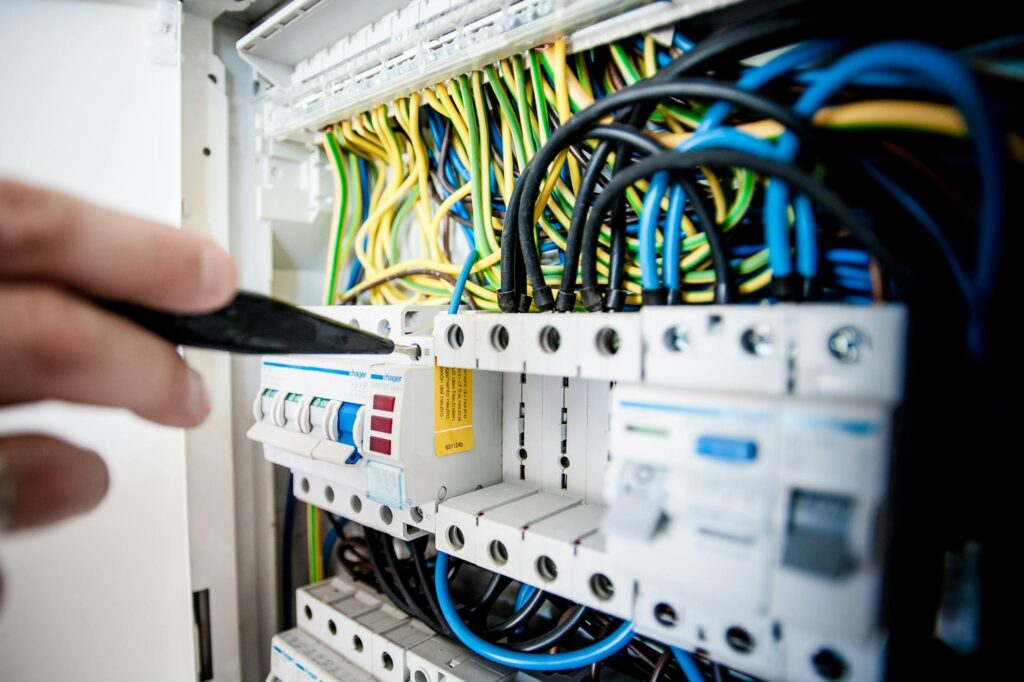Electricity was at the heart of the Industrial Revolution. It’s only fitting that the Industry 4.0 era is having a massive impact on electrical engineering today. While there’s a lot of focus on how Industry 4.0 has brought interconnectedness and automation to manufacturing and the supply chain, it’s also reshaped the field of electrical engineering.
Today’s electrical engineer must possess a whole new skill set. In some cases, they must know about Big Data analytics, AI, cloud computing, or some combination of modern technology. While these demands are outside the scope of traditional electrical engineering, the new skill sets are worth it. This new breed of electrical engineer can bring greater efficiency, flexibility, and intelligence to today’s industrial settings. Here’s a look at five different technologies that show the impact of Industry 4.0 on today’s electrical engineering practices.
Industrial Internet of Things (IIoT) Applications
The Industrial Internet of Things (IIoT) has introduced several new applications that require electrical engineers to broaden their horizons. For example, the emerging field of smart grid management needs electrical experts who can design the necessary communication infrastructure and control systems. In addition, electrical engineers should now have some expertise with data analytics platforms for optimal grid management.
Interconnected industrial equipment also requires new approaches to electrical design. Now, engineers with experience integrating sensors, actuators, and communication interfaces are in demand. And since IIoT forms the backbone of smart manufacturing systems, today’s electrical engineers might be called upon to design and implement the communication networks that control the data flow.
Cyber-Physical Systems Integration
Cyber-physical systems combine computational elements with physical processes. Electrical engineers must now bridge the gap between digital and mechanical systems. Industry 4.0 companies need talent to develop and implement real-time control systems that react to dynamic changes in production equipment. Therefore, today’s engineers turn to new tools like model-based design and simulation software.
One of the challenges of cyber-physical systems is ensuring their security and reliability since they control critical infrastructure. This means top-tier electrical engineers must now have a grasp on cybersecurity and fault-tolerant systems. The goal here is to keep production systems up and running, even in the face of hackers or component failures. These requirements have added yet another modern spin to traditional electrical engineering.
Additive Manufacturing Processes
Additive manufacturing — sometimes called 3D printing, although there’s more to it — has transformed the manufacturing sector. Complex, custom parts are now designed digitally and created on demand. Not limited to simple plastic parts, additive manufacturing allows for the integration of electronic components like circuits and sensors.
Electrical engineers utilize their skills and knowledge to design these embedded electronic systems. A related skill for some engineers is rapid prototyping. By quickly creating and testing early designs, they help accelerate the development of new products.
Predictive Maintenance Tools
Predictive maintenance tools leverage AI and data analytics to predict equipment failures and optimize maintenance schedules. Some electrical engineers develop and implement new algorithms and interpret the results. Others are involved in designing data acquisition systems to help train the algorithms. A subset of these systems functions as condition monitors, as electrical engineers develop tools to keep tabs on equipment performance and provide alerts for potential problems.
Data from predictive maintenance applications can also be integrated with control systems. By analyzing the provided predictive data, the control system can automatically adjust operating parameters and prevent failures. Therefore, employers need electrical engineers with the skills to develop the interfaces and communication protocols that facilitate this data exchange.
Automated Production Systems
Automated production systems rely on a form of robotics known as programmable logic controllers, or PLCs. These controllers allow Industry 4.0 robots to interpret conditions around them and make intelligent choices. Electrical engineers may be called upon to design and develop PLCs. Typically, this involves understanding the specific processes being automated and translating those requirements into logical control sequences.
This means the electrical engineer of today may have the skills of an application developer, manufacturing systems expert, or both. Depending on the complexity of an automated production system’s processes, they might even need expertise in robotics. Modern electrical engineers develop safety systems, such as emergency stops, light curtains, and interlocks, to help protect production line workers.
Electrical Engineering: A Career Field Transformed
The rapid advance of technology has changed nearly every career field, but perhaps none more so than electrical engineering. Industry 4.0 has thoroughly upended how manufacturing organizations design and produce products, and electrical engineering has been transformed. Modern manufacturers must now seek engineers with skills in AI, data analytics, additive processes, automation, and more. The new breed of electrical engineer offers the skills that make Industry 4.0 a reality.
For more information on trends across a wide range of industries, follow MRINetwork.

Connect with MRINetwork